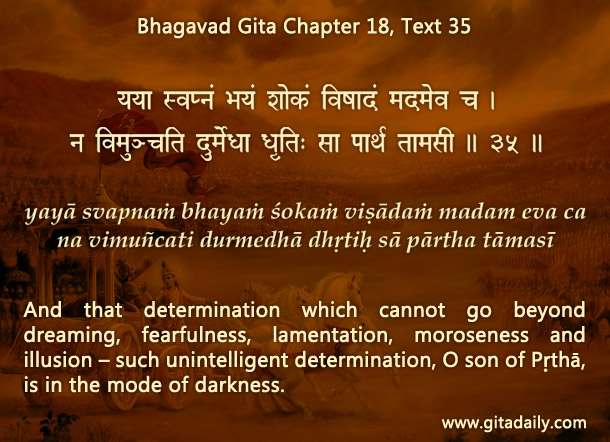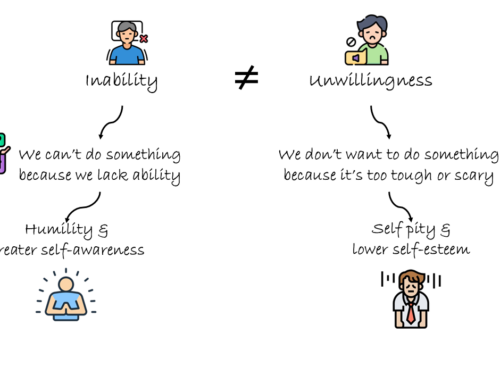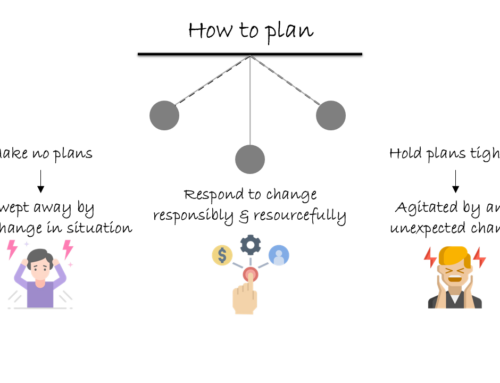To deal with fear focus not on what if but on what is
Suppose we hear about an acquaintance getting a heart attack. We may become fearful: “What if I get a heart attack when I am alone with no one to help?” If we start dwelling on what ifs, we turn on the switch for our mind to display a horror movie in which we are not the spectators but are the victims. Such fearfulness characterizes a perverse determination in the mode of ignorance (Bhagavad-gita 18.35).
But doesn’t fear alert us to imminent danger? Yes, sometimes. More often, however, it just overwhelms us with nightmares of horrifying future scenarios. To deal with fear effectively, we need to separate actual dangers from imagined ones. How? By changing the question going on within us from “What if?” to “What is?” We can focus on the situation as it is: “What is the exact problem right now?” If we are too disturbed to answer that question coherently, we can focus on some neutral “what is” such as our breath: “What is the state of my breathing right now? Let me take a few deep breaths.” By thinking about our breathing, we can ground our mind in the present and calm it down. Then we can consider various future possibilities and decide how we can prepare for them.
And the best grounding for the mind is not just in the physical “what is,” but in the spiritual “what is”. Gita wisdom explains that we are souls who are indestructible, and we are parts of an omnibenevolent divine whose plan for our ultimate welfare is infallible. If these philosophical truths seem too abstract, we can concentrate on a tangible sacred manifestation. Maybe we can behold a picture of Krishna and describe it to ourselves.
When we thus ground ourselves in life’s “what is” — both physical and spiritual — we can best deal with life’s various “what ifs”.
Think it over:
- What’s wrong with dwelling on what if?
- How does focusing on “what is” empower us?
- How can you best focus on “what is”?
***
18.35 And that determination which cannot go beyond dreaming, fearfulness, lamentation, moroseness and illusion – such unintelligent determination, O son of Pṛthā, is in the mode of darkness.
To know more about this verse, please click on the image
Explanation of article:
Podcast:






Fear fires bad emotions